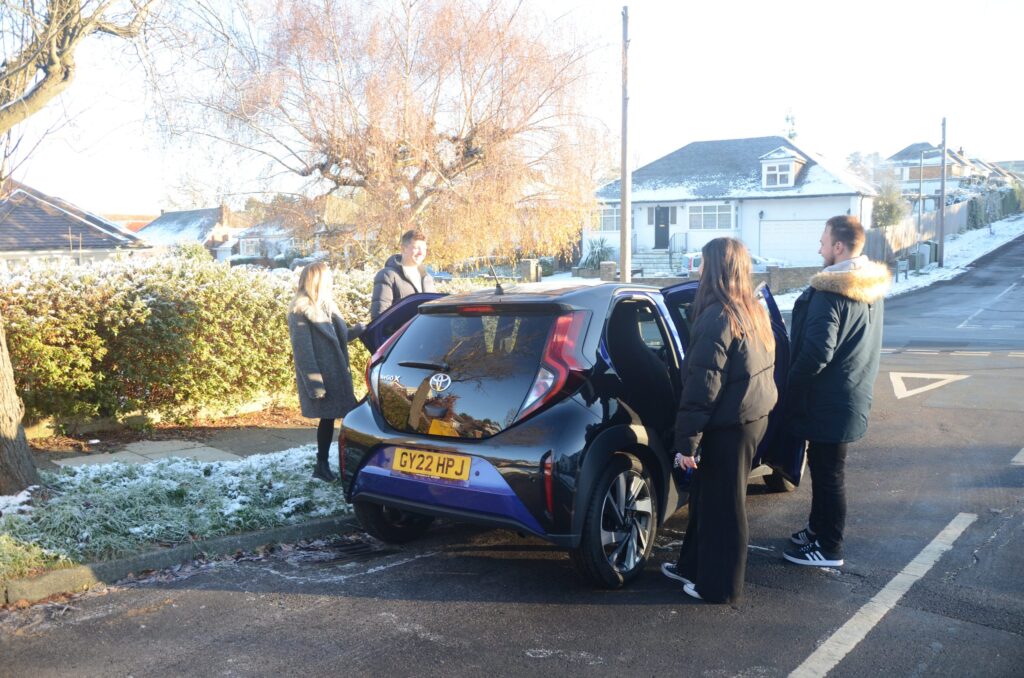Young Drivers

Road Safety Advice for Young Drivers
If you would like HWFRS to visit your Year 10 Pupils within Herefordshire or Worcestershire, please see:
HWFRS Young Passenger / Driver Education: YOUR IMPACT
Young drivers are at a much higher risk of crashing than older drivers and the combination of youth and inexperience can prove a fatal combination on the roads.
National statistics have proven that drivers aged between 17- 24 years old can be up to 4 times more likely to be killed or seriously injured than drivers over 25.
Why young drivers are at risk on the roads
The high level of risk associated with young drivers is due to a combination of youth and inexperience. Their inexperience means they have less ability to spot hazards, and their youth means they are particularly likely to take risks like dangerous overtaking or speeding.
Key risk factors for young drivers
- Carrying passengers
Research shows that peer pressure can encourage bad driving and result in drivers ‘showing off’ to their passengers and taking more risks. Newly qualified drivers with a car full of passengers of similar age are four times more likely to be in a fatal crash, compared with when driving alone. However, when carrying older adult passengers, young drivers are less likely to crash, indicating it is peer pressure rather than simply the presence of passengers that raises the risk.
- Driving at night
Young drivers have a higher proportion of crashes in the evenings and early mornings. Young drivers’ high risk at night is thought to be because they are most likely to be driving for recreational purposes, and more likely to be drunk or drugged, or taking risks such as speeding due to peer pressure. It may also be because drivers at night are more likely to be driving tired.
Driving at night also requires extreme care. Young drivers may be under the impression that because roads are quieter at night it is safer for them to speed or pay less attention. In fact, driving at night takes more care due to poorer visibility, and greater likelihood of drink drivers or drunk pedestrians on the roads.
- Speeding
Young people often drive too fast because they underestimate the risks associated with speeding, and crashes occur because they do not have to react to a dangerous situation and control their vehicle to avoid a collision. Excessive or inappropriate speed is a key contributor towards crashes involving young drivers in the UK and elsewhere.
The younger the driver, the more likely they are to be involved in a crash caused by speed. This is particularly the case for young men, who are much more likely to be involved in a fatal crash caused by speeding than young female drivers.
- Drink and drug driving
Drivers in their 20s self-report as having the highest rate of driving when over the drink-drive limit of all age groups.
When it comes to drug driving, the younger the driver, the more likely to report having driven when under the influence of illegal drugs.
- Mobile phones
Young drivers need to concentrate more on driving than more experienced drivers, which makes them more susceptible to distraction, for example from mobile phones.
Despite this, evidence suggests young drivers are more likely than older drivers to use their mobile phones at the wheel: the RAC has found that around half of young people (aged 17-24) admit to using their mobile phone behind the wheel, the highest proportion of all age categories.
- Seat belts
Young drivers and passengers are less likely to always wear seat belts, and may not belt up when in a car with friends due to peer pressure.
- Telematics and young driver behaviour
Many insurers offer ‘black box’ telematics technology to young drivers. These devices monitor speed, driving style and other factors and can also be used to set curfews so young drivers are not able to drive during high-risk hours, i.e. late at night. Young drivers abiding by these rules can be given discounts on their insurance, which has been shown to be an effective incentive to reduce young driver speeds.
Black boxes can also be used to allow parents to monitor young drivers’ behaviour: as well as providing peace of mind for the parents and guardians of young drivers, parental monitoring has been found to reduce risky driving.
- Novice drivers and the law
Penalty points and disqualification are slightly different for novice drivers, in acknowledgement of the increased risk they face on the roads.
Your licence will be cancelled (revoked) if you get 6 or more points within 2 years of passing your test.
Those whose licences are cancelled within two years have to apply and pay for a new provisional licence and pass both theory and practical parts of the driving or riding test again to get a full licence.
Penalty points and new drivers from www.gov.uk